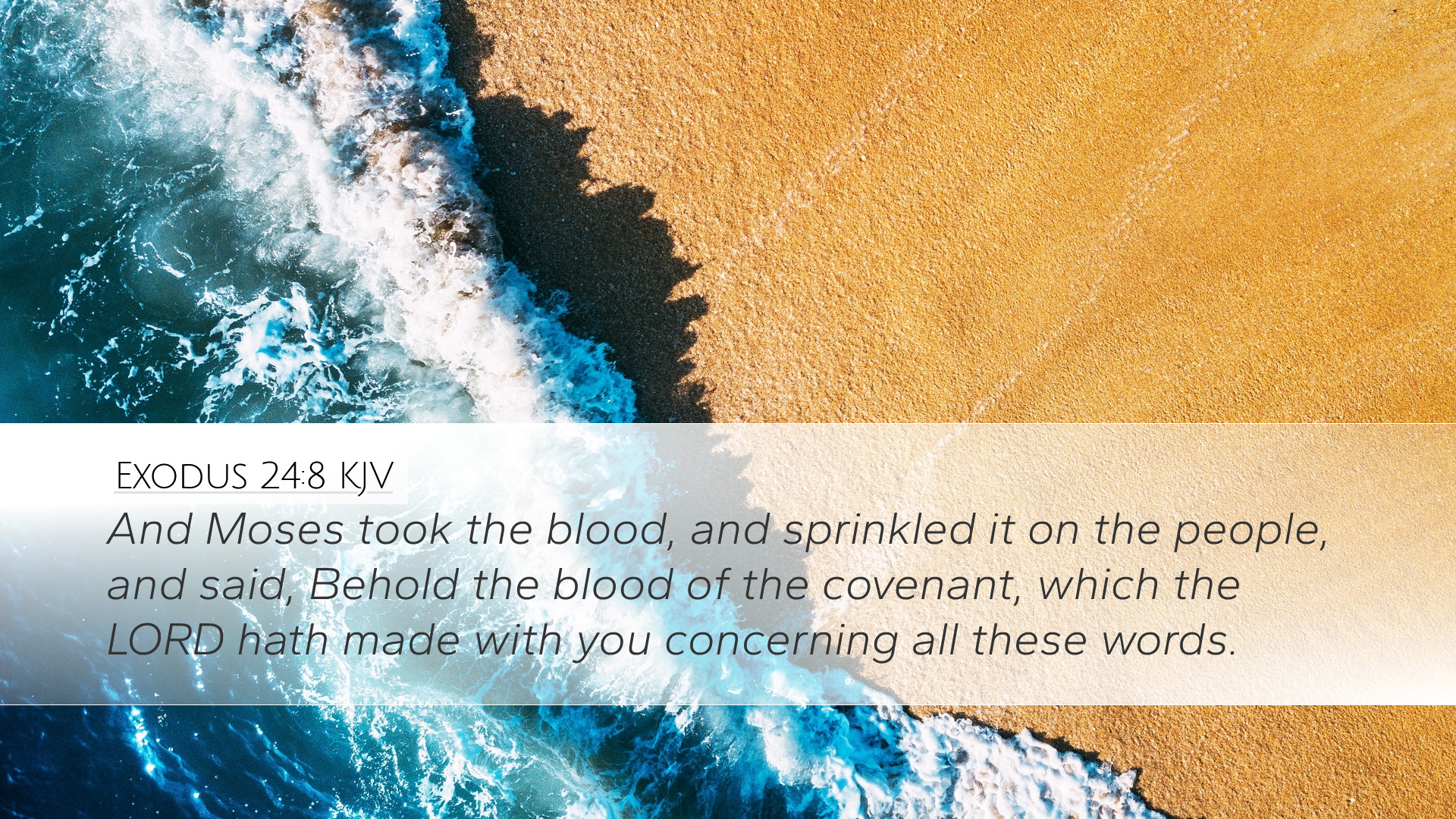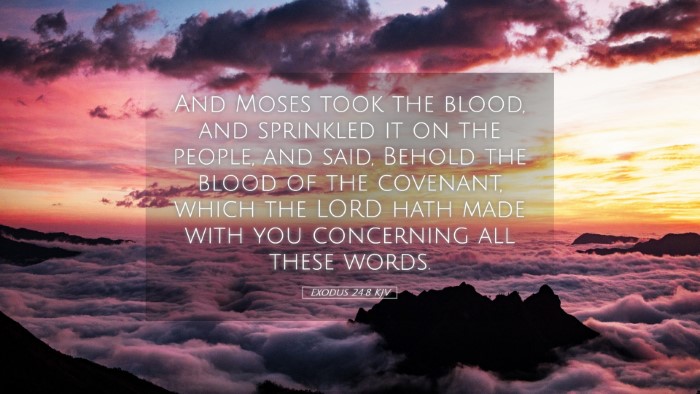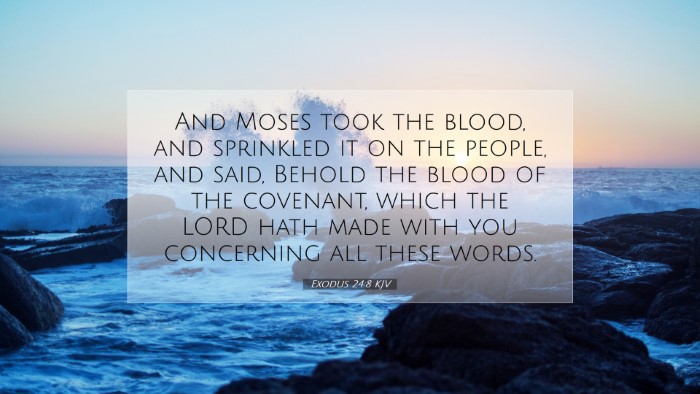Exodus 24:8 - Commentary and Insights
Verse: "And Moses took the blood, and sprinkled it on the people, and said, Behold the blood of the covenant, which the LORD hath made with you concerning all these words."
Contextual Overview
Exodus 24 recounts a pivotal moment in Israel's history when Moses ratifies a covenant between the LORD and the children of Israel. This passage serves as a significant affirmation of God's promises and the response of His people.
Textual Analysis
Moses' act of sprinkling blood signifies the establishment of a formal covenant, which is central to the biblical narrative. Blood, in the Scriptures, symbolizes life and atonement, pointing to deeper theological implications about sacrifice and redemption.
Commentary Insights
Matthew Henry's Commentary
Matthew Henry emphasizes the solemnity of the covenant ceremony. He notes that the blood not only signifies the terms of the covenant but also the seriousness with which they are to be kept. Henry asserts that the blood serves as a token, reminding the Israelites of their obligations to obey God's commandments.
- Covenant Relationship: The act of blood sprinkling symbolizes the binding relationship between God and His people. Henry points out that this relationship requires fidelity and commitment.
- Recognition of God's Sovereignty: The people's acknowledgment of the covenant is essential. Moses reminds them that it is God who has initiated this covenant, underscoring their dependent relationship on divine grace.
Albert Barnes' Commentary
Albert Barnes highlights the ritualistic aspect of the blood. He explains that blood in the Old Testament often signifies life and the penalty of sin, and thus its sprinkling was a profound act. Barnes notes that this act is not just a ritual but carries spiritual significance.
- Symbol of Life: Barnes indicates that by sprinkling the blood on the people, Moses is conveying the message that their lives are now committed to the covenant, which requires sanctification and obedience.
- Unity through Blood: The communal aspect of the covenant is emphasized; the blood unites the people with God in a unique bond, which mirrors the New Testament understanding of Christ's sacrifice.
Adam Clarke's Commentary
Adam Clarke provides a detailed examination of the Hebrew terms used in this passage. He elucidates that the term for “covenant” emphasizes the treaty aspect of the agreement, reflecting mutual responsibilities. Clarke draws parallels between this ancient practice and the ultimate blood of Christ, bringing a messianic interpretation to the verse.
- Historical Context: Clarke contextualizes the sprinkling of blood within the ancient Near Eastern practices of covenant-making, enhancing the understanding of its significance to the Israelites.
- Foreshadowing Christ: His insights lead to a profound theological interpretation: just as blood ratifies the Old Covenant, the blood of Christ seals the New Covenant, illustrating continuity in God's plan for redemption.
Theological Implications
The covenant in Exodus 24:8 carries significant theological ramifications for both the Old and New Testaments:
- Covenant Faithfulness: The necessity of faithfulness to God’s words is paramount in both testaments. Just as the Israelites were called to respond to God’s commands, Christians today are urged to heed the teachings of Jesus.
- The Nature of Sacrifice: The bloody sacrifice underlines the seriousness of sin and the life-and-death stakes of the relationship between God and humanity.
- Christ as Fulfillment: The New Testament reveals Jesus as the ultimate fulfillment of this covenant, indicating that through His sacrifice, believers enter into a deeper covenant relationship.
Application for Today
This verse serves as a reminder for contemporary believers of the gravity of their commitments to God. Understanding the sacrificial system and the establishment of covenants can lead to a richer appreciation of Christ's work:
- Reflection on Commitment: Pastors and theologians can use this passage to encourage congregants to reflect on their own commitments to God and the seriousness of covenantal relationships.
- Understanding Atonement: For students of theology, grasping the significance of blood in the Old Testament helps to clarify the concept of atonement found in the New Testament.
- Celebration of the New Covenant: Worship practices can incorporate the themes of covenantality expressed in Exodus 24:8, celebrating the blood of Christ in Holy Communion as the new covenant in His blood.
Conclusion
Exodus 24:8 encapsulates a moment of divine-human interaction that is foundational to understanding both Old Testament and New Testament theology. The sprinkling of blood serves as a significant act of covenant-making that resonates through Scripture, pointing toward ultimate redemption through Christ. As believers engage with this text, they are prompted to remember their commitments and the blood that was shed for their covenant relationship with God.


